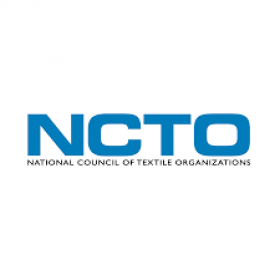NCTO: China Penalty Tariffs on finished textiles and apparel to be maintained
- China Penalty Tariffs on Finished Textiles & Apparel Give U.S. Companies a Chance to Compete and are a Powerful Trade-Negotiation Tool, NCTO Tells U.S. International Trade Commission
Section 301 penalty tariffs on finished Chinese textile and apparel imports give American manufacturers a chance to compete and provide trade officials with an essential trade negotiation tool, the National Council of Textile Organizations (NCTO) told a key government panel today in a formal written submission. Removing them, the association said, would reward China, put U.S. manufacturers at a competitive disadvantage and do nothing to reduce inflation.
Those were among the key points outlined by NCTO President and CEO Kim Glas in a written testimony submitted to the U.S. International Trade Commission during three days of hearings on the economic impact of Section 301 China tariffs and Section 232 steel tariffs on U.S. industries.
The 301 penalty tariffs should be maintained “absent substantive improvements in China’s pervasive, predatory trade practices,” Glas said in her testimony. China’s illegal actions “have put U.S. companies at a serious disadvantage, and tariffs give American manufacturers a chance to compete.” Glas noted that U.S. trade officials have “stressed that the penalty tariffs also create leverage and are a ‘significant tool’ in ongoing negotiations with China.”
While some advocates for lifting the tariffs point to concerns about inflation, Glas said, “canceling these penalty duties would do little to ease Americans’ inflationary pains.” She also noted that “apparel prices out of China continue to hit rock bottom even with the Section 301 tariffs in place. As detailed in an economic study recently released by Werner International, U.S. import prices for apparel from China have dropped 25 percent since 2019 and 50 percent since 2011.”
Glas also warned that lifting the tariffs would have “a substantial negative ripple effect” on U.S. free-trade agreements, including undermining those with Western Hemisphere partners that have established shorter coproduction supply chains and serve other U.S. and regional interests.
The Section 301 tariffs were first imposed in 2018 in response to China’s persistent violations of intellectual property rules. By law, they are now under review.
National Council of Textile Organizations










